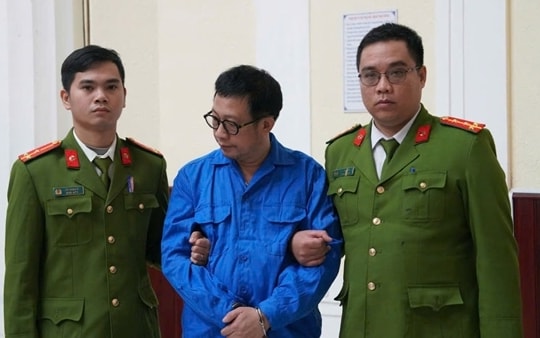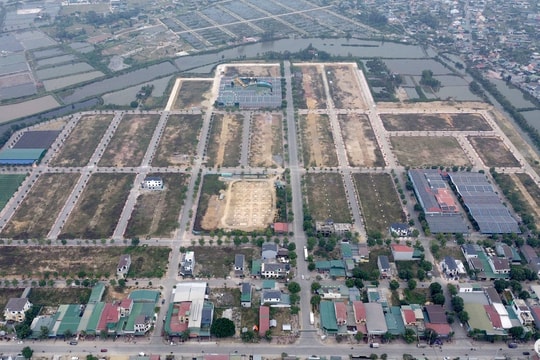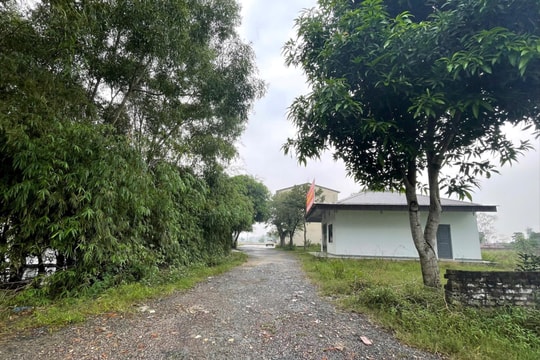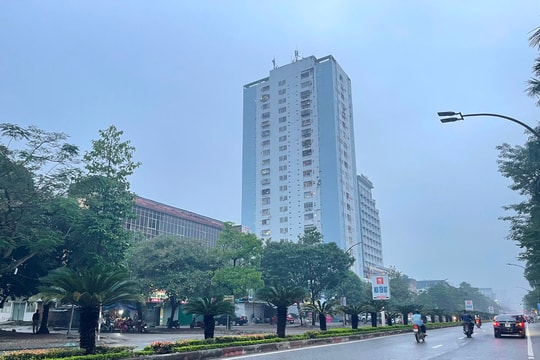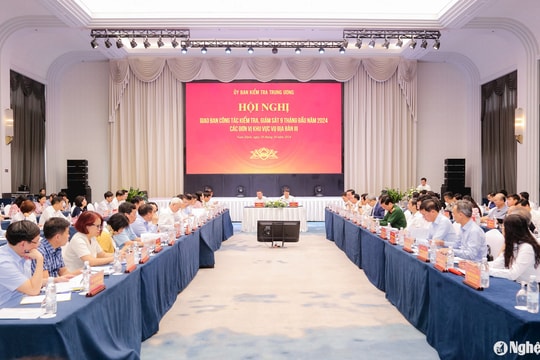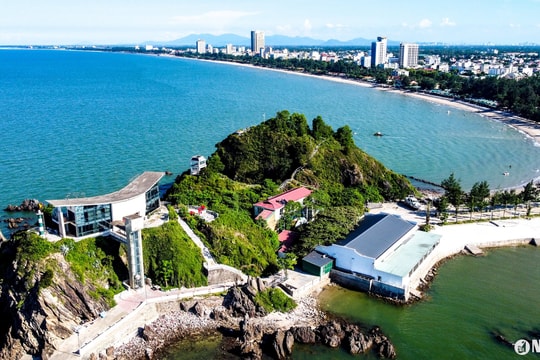'If inspection and examination are closed, how can we find out violations?'
With a closed mechanism, the supervisory agencies are influenced by interests, collude with each other, and share profits, so how can they find out violations?
A series of projects belonging to State corporations and groups were invested with thousands of billions of VND but incurred losses and many violations were discovered. Typical examples include the loss of 3,000 billion VND of the Vietnam Oil and Gas Construction Joint Stock Corporation (PVC) when Trinh Xuan Thanh was Chairman of the Board of Directors, the investment of the Vietnam Oil and Gas Group (PVN) in Ocean Commercial Joint Stock Bank and the loss of 800 billion VND, or a series of Ethanol biofuel projects with a total investment capital of more than 5,000 billion VND but were ineffective.
This issue was raised by General Secretary Nguyen Phu Trong in his opening speech at the recent 5th Central Conference: “In general, the business efficiency and contributions of most State-owned enterprises are still low, not commensurate with the resources invested by the State. Many State-owned enterprises are operating at a loss, causing losses, corruption, waste, and negativity with investment projects worth thousands of billions of dong “shelved”, exacerbating bad debt in banks and national public debt, causing resentment among the people…”.
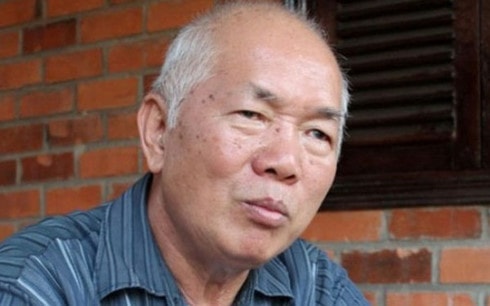 |
| Mr. Tran Quoc Thuan - former Deputy Head of the National Assembly Office |
That is waste, causing loss of finance, assets, state budget... is a manifestation of degradation identified by Resolution 4 of the 12th Central Committee.
Investment implementation is a process, but only when thousands of billions of VND invested by the State are ineffective and lost, then violations are discovered. So why were violations not discovered from the beginning during the investment and project implementation process?
Mr. Tran Quoc Thuan - former Deputy Head of the National Assembly Office said that this problem originates from our institutions and mechanisms that have big loopholes. Who supervises a project with an investment of thousands of billions of dong and what? "Supervision is wandering around or supervising what?" Mr. Tran Quoc Thuan said.
According to the former Deputy Head of the National Assembly Office, for projects worth thousands of billions of dong, construction supervision, settlement, accounting, etc. must be independent. For projects worth thousands of billions of dong, there must be international auditing.
Currently, the inspection and examination are closed, so how can it be wrong? "Whoever concludes that they are wrong? That is because the mechanism and institution are closed in everything," Mr. Thuan analyzed.
With a closed mechanism, the supervisory agencies are influenced by interests, collude with each other, and share profits, so how can we uncover violations? We must find a way for the agencies performing the supervisory function to be rewarded, meaning that if there are benefits, they will "unearth" everything.
Recalling a research trip to Australia, Mr. Thuan said that Australian police do not accept bribes. Because if a person is caught bribing and the police make a report, the police will be rewarded with a full month's salary that month.
“A long time ago, their monthly salary was about 3,000-4,000 Australian dollars. When a vehicle ran a green light, crossed a lane, or parked in the wrong place, they would issue a ticket to fine it. If the violator paid money, they would issue a ticket and they would get an extra month’s salary this month. They wanted someone to bribe them so they could get another month’s salary that month. Instead of receiving a bribe of 100-200 USD, they would receive several thousand dollars, which would be great,” said Mr. Thuan.
Therefore, the former Deputy Head of the National Assembly Office said that for those who carry out the supervisory function, we must have a protective fence so that the wall cannot be penetrated. If that wall is penetrated, the Party's life will be very precarious.
Another issue that has been raised is that to eliminate these signs of degradation, we must strengthen the Party organization, the Party Executive Committee must strengthen inspection, supervision and publicize the results to contribute to the fight to prevent and repel the degradation. According to the former Deputy Head of the National Assembly Office, the consolidation here must focus on those with deep expertise in these fields, and at the same time arrange them independently and supervise each other.
Besides, there should be timely rewards and punishments, and inspections should be carried out as soon as possible.
Currently, in State corporations and groups, the General Director, Chairman of the Board of Directors, etc. is also the Party Secretary. When any violation occurs, the leader is responsible. The person responsible is the Party Secretary. If the Party Secretary, the head of the agency, inspects and checks, it is no different from 'taking a knife to cut himself'.
Mr. Tran Quoc Thuan said that the leader taking responsibility when there are violations has positive aspects but also negative aspects, because they will cover up violations in the unit because when discovered, they must take responsibility.
And when the mistakes are covered up, their unit is always 'clean and strong, receiving medals, awards and even inside benefits'.
Recalling the words of the late Prime Minister Vo Van Kiet: We must have a conference to discuss in depth the mechanisms and institutions like the 6th Party Congress dissected the economy to transition to a market economy.
According to Mr. Thuan, dissecting the institutional mechanism will help us find the answer: Why fight corruption, why there is a situation of small corruption to big corruption, widespread corruption to unstoppable corruption.
There are many resolutions of our Party but they still cannot prevent it, there must be a reason. Fighting corruption is not only about punishment, what people desire most is to recover as much lost money as possible, and that is the goal of fighting corruption. And the bigger problem is that we must study a mechanism, an institution that cannot be corrupted, does not dare to be corrupt, and cannot be corrupted.
Mr. Thuan said that recently, tens of thousands of billions have not been recovered, and the money is the sweat and tears of the people. Therefore, it is necessary to do three things: punish, recover assets and review institutional and mechanism reforms in the fight against corruption./.
According to VOV

